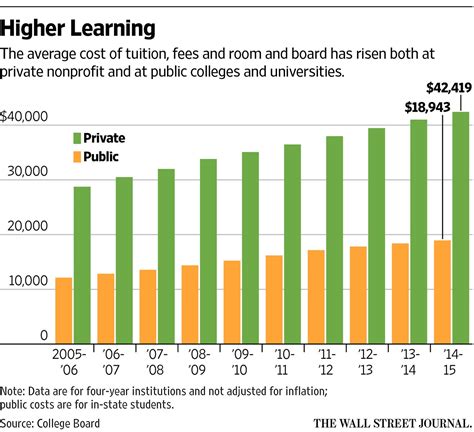Ball State University, a public research university in Muncie, Indiana, offers a wide range of undergraduate and graduate programs to students from across the country and around the world. With its affordable tuition rates, generous financial aid packages, and renowned academic programs, Ball State provides an exceptional educational experience for students of all backgrounds.

Tuition and Fees
Tuition and fees at Ball State vary depending on the student’s residency status, academic level, and program of study. The following table provides an overview of the estimated tuition and fees for the 2022-2023 academic year:
| Category | Undergraduate | Graduate |
|---|---|---|
| Indiana Residents | $11,278 | $13,010 |
| Non-Indiana Residents | $23,832 | $25,320 |
| Online Programs | $15,516 | $18,960 |
Financial Aid
Ball State University is committed to making education affordable for all students. The university offers a variety of financial aid programs, including scholarships, grants, loans, and work-study opportunities, to help students meet the cost of tuition and fees.
In the 2021-2022 academic year, Ball State awarded over $230 million in financial aid to students. Approximately 85% of undergraduates received some form of financial assistance.
Scholarships
Ball State offers a wide range of scholarships to incoming and continuing students, recognizing academic achievement, leadership, service, and financial need. These scholarships vary in amount and eligibility criteria, and students are encouraged to apply for multiple awards.
Some of the most popular scholarships at Ball State include:
- Presidential Scholars Program: Up to $20,000 per year for incoming freshmen with exceptional academic credentials.
- University Scholars Program: Up to $15,000 per year for incoming freshmen with strong academic records and extracurricular involvement.
- Heritage Scholars Program: Up to $10,000 per year for incoming freshmen with a family history of attending Ball State.
Loans
Students who are unable to meet the cost of tuition and fees through scholarships or grants may be eligible for student loans. Ball State offers a variety of federal and private loans to help students finance their education.
Federal loans are subsidized by the government and have lower interest rates than private loans. However, they are also more restrictive in terms of eligibility and borrowing limits.
Private loans are not subsidized by the government and have higher interest rates than federal loans. However, they are less restrictive in terms of eligibility and borrowing limits.
Students should carefully consider their loan options before borrowing money to pay for college.
Work-Study
The Federal Work-Study Program provides part-time employment opportunities to students with financial need. Students can work up to 20 hours per week on campus or at off-campus locations approved by the university.
Work-Study earnings can help students offset the cost of tuition and fees, books, and other educational expenses.
Pain Points
- High tuition and fees: The cost of tuition and fees at Ball State can be a major financial burden for students and their families.
- Limited financial aid: While Ball State offers a variety of financial aid programs, the amount of assistance available is limited. Many students still need to borrow money to pay for college.
- Complex financial aid process: The financial aid process can be complex and time-consuming. Students often need to submit multiple forms and documents to qualify for assistance.
Motivations
- Earn a degree from a respected university: Ball State University is a nationally recognized institution of higher education. A degree from Ball State can open doors to a successful career.
- Improve career prospects: A college degree can lead to better job opportunities and higher salaries.
- Gain valuable skills and knowledge: Ball State offers a wide range of academic programs that can help students develop the skills and knowledge they need to succeed in the workplace.
Effective Strategies
- Apply for financial aid early: The financial aid application deadline is March 10th for incoming freshmen and June 1st for continuing students. Students who apply early are more likely to receive the maximum amount of aid.
- Explore all financial aid options: Ball State offers a variety of financial aid programs, including scholarships, grants, loans, and work-study opportunities. Students should explore all of their options before making a decision.
- Borrow only what you need: Students should carefully consider their loan options before borrowing money to pay for college. They should only borrow what they need and make sure they understand the terms of their loan.
- Work part-time: Students can offset the cost of tuition and fees by working part-time during the school year.
- Take advantage of campus resources: Ball State offers a variety of resources to help students manage the cost of college. Students should take advantage of these resources, such as financial counseling and budgeting workshops.
Common Mistakes to Avoid
- Not applying for financial aid: Many students fail to apply for financial aid because they think they won’t qualify. However, even students with moderate incomes may be eligible for some form of assistance.
- Borrowing too much money: Students should carefully consider their loan options before borrowing money to pay for college. They should only borrow what they need and make sure they understand the terms of their loan.
- Not managing their money wisely: Students need to develop a budget and stick to it to avoid overspending. They should also be mindful of their spending habits and avoid unnecessary expenses.
Conclusion
Ball State University offers a high-quality education at an affordable price. The university’s generous financial aid packages and commitment to student success make it a great choice for students from all backgrounds.
